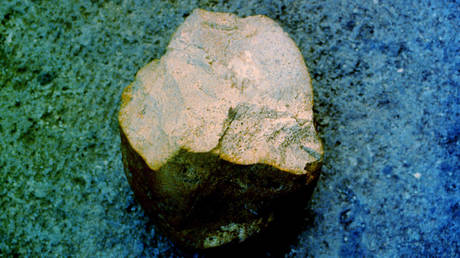

Israeli and Canadian researchers say they have uncovered evidence the prehistoric inhabitants of a South African cave were fashioning stone tools nearly two million years ago, making the cave one of the world’s oldest ‘homes’.
The discovery was made in Wonderwerk Cave, a well-known archaeological site located in southern Africa’s Kalahari Desert. Researchers have been excavating the cave for years, and a group of geologists and archaeologists from the Hebrew University of Jerusalem and the University of Toronto say they have found the earliest evidence of human activity in the underground chamber, whose Afrikaans name means ‘Miracle’.
The team analyzed sedimentary layers 2.5 meters (8.2 feet) thick that contained stone tools, animal remains, and other traces of prehistoric life. They then measured the magnetic signal of the sediment samples. Their analysis showed that some of the samples were magnetized to the south instead of the north, which is the direction of today’s magnetic field. The discovery helped determine the age of the sedimentary layers, as well as their contents.
According to the archeologists, the cave had housed simple stone tools dating back 1.8 million years, and they also found evidence that fires had been lit there over a million years ago.
Although older stone tools have been found in other parts of Africa, the new discovery is unique because it was made in a cave, as opposed to an open-air site. The evidence of fire-setting inside the cave was particularly significant, as similar traces of ash found in the open air could have been the result of natural wildfires.
Hailing the breakthrough, Israeli media described the cave as the “oldest home in human history.”
The scientists described their findings as an “important step towards understanding the tempo of human evolution across the African continent.” They said that being able to accurately date the ancient ‘home’ would aid with future research into how early humans lived.
If you like this story, share it with a friend!
Related posts:
Views: 0
 RSS Feed
RSS Feed

















 April 27th, 2021
April 27th, 2021  Awake Goy
Awake Goy  Posted in
Posted in  Tags:
Tags: 
















